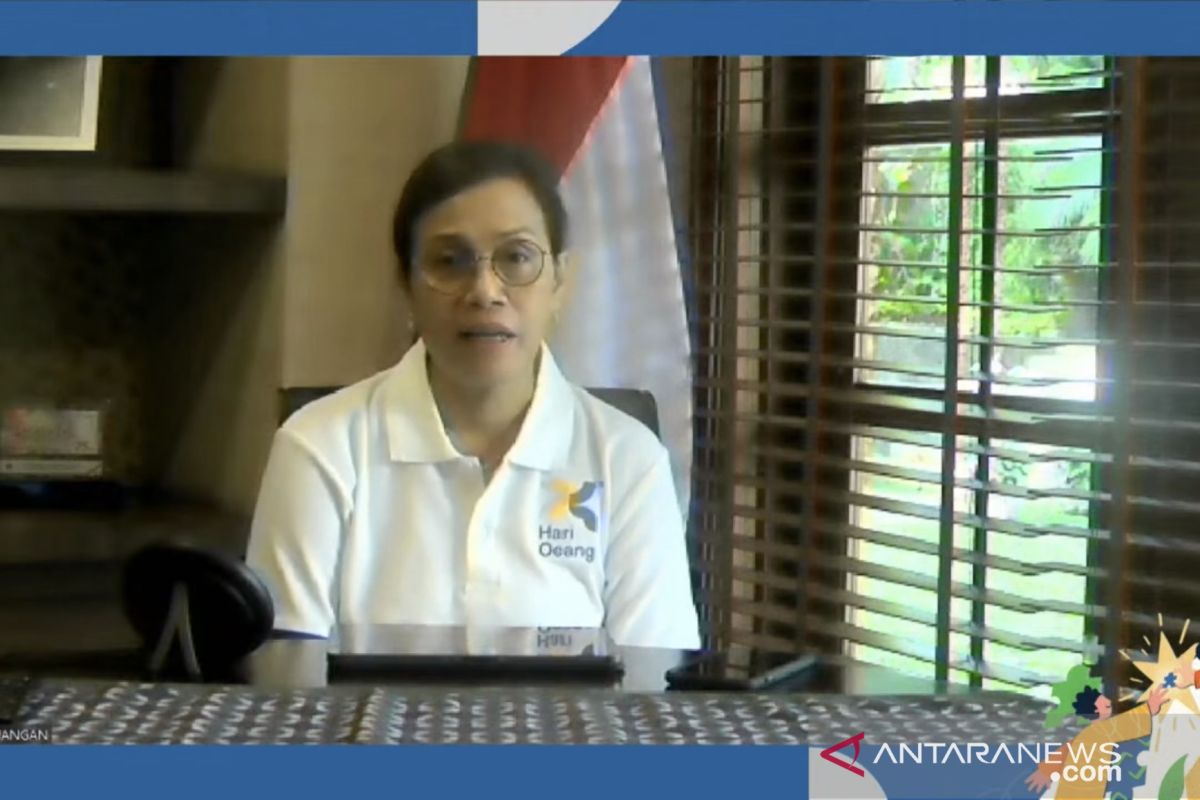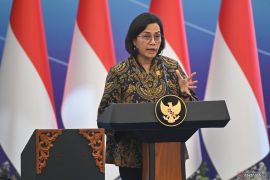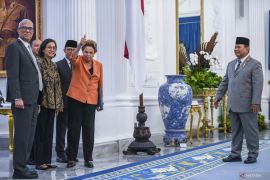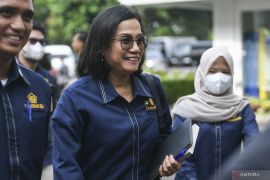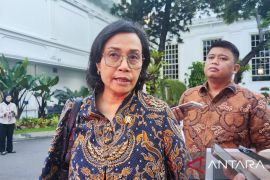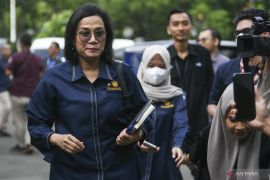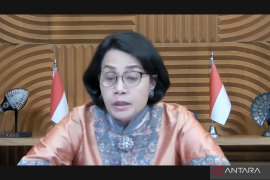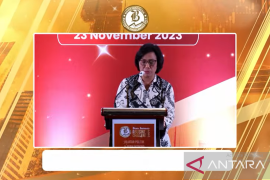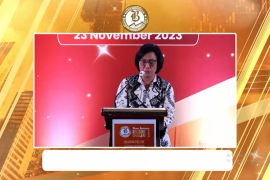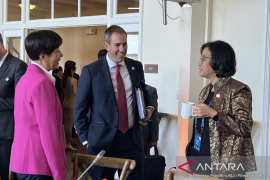We must be adaptive, responsive, and caring to deal with the COVID-19 crisis and encourage the awakening of the Republic of IndonesiaJakarta (ANTARA) - Finance Minister Sri Mulyani Indrawati laid emphasis on the need for all levels of the Finance Ministry to be adaptive, responsive, and caring in their approach to surmount over the COVID-19 pandemic.
"We must be adaptive, responsive, and caring to deal with the COVID-19 crisis and encourage the awakening of the Republic of Indonesia," the minister stated at the commemoration of the 74th Indonesian Oeang Day in Jakarta, Friday.
Indrawati sought an adaptive outlook that can be achieved through the management of the State Budget instrument that must be flexible in responding to the challenges of COVID-19 but still with the application of right procedures.
"In the management of state finances, the tools or instruments of the State Budget must be adaptive to respond to the challenges presented by the COVID-19 pandemic," she emphasized.
Related news: Government disburses Rp304.6 trillion for handling COVID-19
Related news: Government spending becomes backbone of Indonesian economy: official
Meanwhile, the minister believes that responsiveness can be reflected through amendments to the state budget made to help people deal with the impact of the COVID-19 pandemic.
Indrawati believes that a responsive approach to help the community can be adopted through focus on the utilization of the state budget for health, social security, MSME assistance, and the business world as well as local governments.
"That was carried out in order to rise again. It is all done in a responsive and caring manner,” she noted.
The minister affirmed that a caring approach can be applied by each rank of the Ministry of Finance to conduct state financial arrangements in order to maintain Indonesia's resilience in the midst of a pandemic crisis.
"We are making adjustments to maintain the resilience of the Republic of Indonesia and state finances, so that we can overcome the extremely challenging and tough COVID-19 pandemic. God willing, with efforts and prayers, we can handle it," she stated.
The government had earlier disbursed Rp304.6 trillion of its Rp695.2-trillion budget for COVID-19 handling and the economic recovery program as of September this year, the National Economic Recovery and Transformation Task Force (Satgas PEN) stated.
“Until the end of September, we have succeeded in disbursing around Rp304.6 trillion from a total of Rp695.2 trillion, or 43.8 percent (of the budget),” head of the PEN task force, Budi Gunadi Sadikin, stated at an online press conference from his office in Jakarta on Wednesday.
The funds, totaling Rp695.2 trillion, were distributed across six major sectors: Rp87.55 trillion allocated for health, Rp203.9 trillion for social protection, Rp120.61 trillion for business incentives, Rp123.46 trillion for the MSME sector, and Rp53.57 trillion for corporate financing, with support from ministries and agencies as well as local governments amounting to Rp106.11 trillion.
“Since the task force was formed, Rp137.89 trillion was disbursed and per week, (under) both social protection and the MSME category, as well as sectoral ministries and local governments," Sadikin informed.
In the social protection sector, the program, with the largest budget absorption, was the Family Hope Program (PKH), with a budget of Rp36.3 trillion allocated for 10 million beneficiaries, or the poorest 40 million people in Indonesia, the PEN task force head noted.
A total of Rp31.9 trillion was distributed under the basic food card program to 19.4 million beneficiary families, or 80 million Indonesians from the lowest economic rung, including the Family Hope Program recipients.
Related news: PEN task force outlines Indonesia's economic recovery strategy
Related news: Government stresses on health as key aspect in economic recovery
Translator: Astrid F, Azis Kurmala
Editor: Sri Haryati
Copyright © ANTARA 2020
